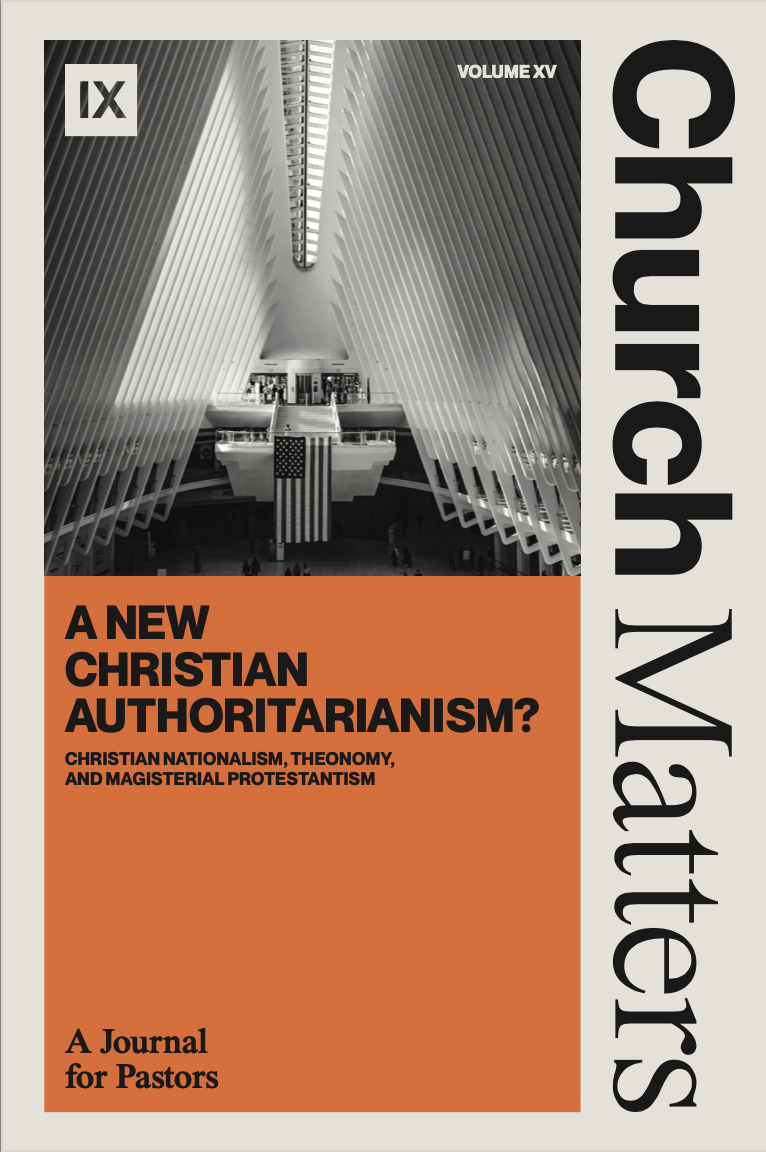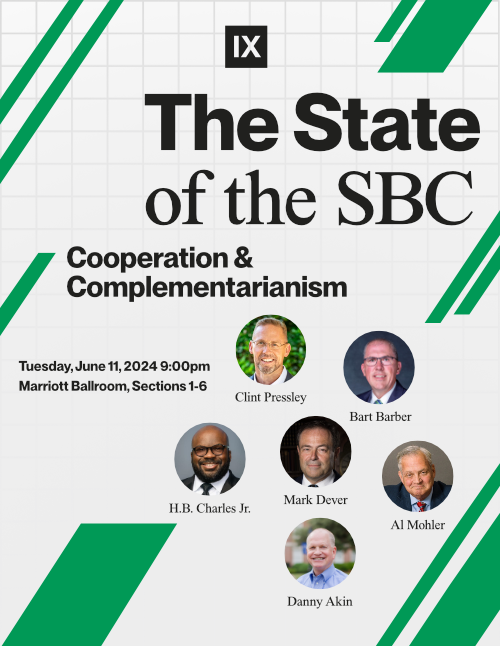John Gill on Theonomy
Theonomy began as a controversial movement in late-twentieth-century American Reformed theology and, in recent years, has reappeared within some parts of this community.
Between the 1970s and 1990s, theonomists such as R. J. Rushdoony (1916–2001), Gary North (1942–2022), and Greg L. Bahnsen (1948–1995) were involved in debates over the Old Testament’s relationship to the New, the continuance of the Mosaic civil laws, postmillennial eschatology, and presuppositional apologetics.[1] After the deaths of Rushdoony and Bahnsen, the movement largely cooled. However, with the help of Covid lockdowns, a new strain has regained some standing. Figures in this renewal include Joseph Boot, James White, and Douglas Wilson.[2]
While the earlier debates over theonomy were largely relegated to the American Presbyterian world, this brand is finding traction among Baptists, forcing them to face the incongruity between their theology and theonomic distinctives. Theonomy stresses the continuity of Mosaic moral and civil laws with the New Covenant. Though they differ as to particulars, Baptists typically see discontinuity between the covenants and stress the newness of the New.[3]
Without getting into a discussion of whether the relationship between Baptists and theonomy is tenuous, this essay considers the thought of an important eighteenth-century Baptist, John Gill (1697–1771). It also considers the question of the natural law, an aspect of moral theology whose validity theonomists strangely deny. While they stress the abiding character of moral law, they deny the possibility of the decalogue’s analogue in nature.
Gill is important because of his Reformed pedigree and his influence on later Baptist thought. Analyzing his work will clarify a fundamental difference between Baptist thought and theonomy.[4]
THEONOMISTS AND THE NATURAL LAW
Following the groundwork laid by modern Dutch thinkers like Abraham Kuyper (1837–1920), Herman Dooyeweerd (1894–1977), and Cornelius Van Til (1895–1987), theonomists teach that there is no neutral ground between unbelief and Christian thought. They misinterpret natural law theorists and accuse them of saying that the natural law is neutral territory for believer and non-believer, where God does not have direct moral governance.
Bahnsen described Christian views of natural law as arguing that God is “‘separated’ from the ordinary and ongoing workings of the world he made. God has chosen not to directly govern every detail in the created world on a moment-to-moment basis, and thus ‘nature’ has laws inherent in it which determine what things are like and how things happen.”[5]
In stronger words, North wrote that, “Christians are often confused about this [battle for the mind]. They have been sold a bill of goods by the enemies of God, namely, that there are zones of neutrality scattered throughout the creation, and that some sort of common natural law rules these neutral zones. This is a myth.”[6]
For Boot, natural law is a vague and contentless notion derived from the Enlightenment that allows for a “public sphere [that] is not subject to God’s revelation, but to reason, or natural law.”[7] Natural law stands as the “main rival to biblical law” but is merely an “abstraction.”[8] He argues that Christians have misguidedly made an “appeal to classical philosophy,” which he describes as a “death wish.”[9]
Instead of natural law, Christians should appeal to common grace which does not provide an “alternate law structure to biblical law.”[10] The appeal to natural law, according to Boot, is that “it pretends to neutrality,” and so Christians see it as a “‘non-religious’ paradigm and therefore a useful tool for engagement with the ‘secular’ sphere.”[11]
JOHN GILL AND THE NATURAL LAW
What would a Reformed and Baptist theologian like John Gill say to this? Is the natural law some vague, abstract, neutral territory where believers and non-believers alike can come together in a public sphere, devoid of any notion of the Christian God or his law?
A perusal of Gill’s voluminous corpus reveals a contrary conclusion. For Gill, the natural law shares the same content as the moral law of the Decalogue and is part of God’s active moral governance. From creation, humans have been made in God’s image, which was not annihilated after the Fall, and so they know the natural law as part of their conscience, per Romans 1 and 2. Gill draws his understanding of the natural law both from pagan sources—especially Aristotle’s Politics—and from the history of Christian thought, particularly the church fathers and his fellow Protestant theologians on the continent and in Britain.[12] For instance, he quotes approvingly Cicero’s (106-43) oft-quoted maxim from De Legibus (On the Laws): salus populi suprema esto [the welfare of the people should be the supreme law]. This principle is found throughout Protestant political philosophy, for instance, in the Table Talk of John Selden (1584-1654), the famous English jurist.[13]
A helpful place to start is in Gill’s important Body of Divinity (1769–1770), where he relates the natural law to Adam and his posterity in pre- and post-fall conditions. As Richard Muller argues, this distinction “is particularly important for our recognition of the limits of natural theology,” as pre-fall Adam “had an unfallen perception of the handiwork of God in the natural order.” The fall necessitated special revelation from God to answer the problems of the noetic effects of sin so that mankind could have a saving relationship with God; natural revelation could not establish this. Though sinful man could not know God as Savior, they could know him as Creator through nature.[14]
Gill argued that God governed his rational creatures by law as part of his “government of the world.” This law came via covenant where Adam functions as federal head of humanity. God gave Adam a law that was both “natural and positive,” which was God’s prerogative as King of the world, and humans were expected to follow it.
Based on Romans 2:14–15, Gill described the natural law as “given to Adam, was concreated with him, written on his heart, and engraved and imprinted in his nature from the beginning of his existence, by which he was acquainted with the will of his maker, and directed to observe it.” We see evidence of this because “the remains of it in the hearts of all men, even of the Gentiles” was apparent as part of the “natural conscience in every man.” This law was not sufficient to save. Rather, salvation required the law being “reinscribed” in regeneration on the hearts of believers (Jer. 31:33). The content of this law that was written on the hearts of all in Adam and in Christ “is the same with the Decalogue, as to the substance of it.” The summary of this law, which was “binding on Adam, and on all his posterity” was summarized by Christ in Matthew 22:37, that we are to love God and neighbor.[15]
CONCLUSION
Much more could be said on Gill and the natural law, but suffice it to say that Gill would be baffled by theonomic descriptions of the natural law as some kind of neutral, vague, or abstract concept that owes more to pagan philosophy than to Scripture. For Gill, the natural law was given to Adam and his posterity at creation by God the Governor, as part of his providential control over what he made.
The content of the natural law is that of the Decalogue and, as such, all men were expected to obey it. While the natural law could not establish God as the Savior of mankind, it could tell us about God the Creator. What was first written on the heart was not sufficient to save sinners, which is why it needed to be re-engraved in regeneration.
Theonomic readings of the Protestant natural law tradition are, at the very least, misguided. Baptists who care about the integrity of their own tradition would do well to leave theonomy to the side and embrace the thinking of theologians like Gill whose thought well-represented the best of both Reformed and Baptist theology.
* * * * *
[1] Helpful historical introductions to theonomy are: Michael J. McVicar, Christian Reconstruction: R. J. Rushdoony and American Religious Conservatism (Chapel Hill: The University of North Carolina Press, 2015); Molly Worthen, “The Chalcedon Problem: Rousas John Rushdoony and the Origins of Christian Reconstruction,” Church History 77.2 (June 2008): 399-437.
[2] For the latter, see Crawford Gribben, Survival and Resistance in Evangelical America: Christian Reconstruction in the Pacific Northwest (Oxford: Oxford University Press, 2021).
[3] For a historical treatment of Baptist federal theology, see Samuel D. Renihan, From Shadow to Substance: The Federal Theology of the English Particular Baptists (1642-1704), Centre for Baptist History and Heritage Studies Volume 16 (Oxford: Centre for Baptist History and Heritage, 2018).
[4] For Gill, see Michael A. G. Haykin, ed., The Life and Thought of John Gill (1697-1771): A Tercentennial Appreciation, Studies in the History of Christian Thought (Leiden/New York/Köln: Brill, 1997).
[5] Greg L. Bahnsen, Always Ready: Directions for Defending the Faith (Nacogdoches, TX: Covenant Media Foundation, 2000), 228-229.
[6] Gary North, Liberating Planet Earth: An Introduction to Biblical Blueprints, Biblical Blueprints Series (Fort Worth, TX: Dominion Press, 1987), 21.
[7] Joseph Boot, The Mission of God: A Manifesto of Hope for Society, 2nd ed. (Toronto: Ezra Press, 2016), 525.
[8] Joseph Boot, “The Enduring Relevance of Biblical Law,” Jubilee (Fall 2012), 9.
[9] Boot flattens the variegated interpretations of the natural law. While natural law theory certainly developed after the Enlightenment, its pedigree goes back into the ancient world and the views of medieval thinkers like Thomas Aquinas (1225–1274) or those in the Reformed tradition differ markedly from later views. See Stephen J. Grabill, Rediscovering the Natural Law in Reformed Theological Ethics, Emory University Studies in Law and Religion (Grand Rapids, MI: Wm. B. Eerdmans Publishing Co., 2006).
[10] Boot, “Enduring Relevance of Biblical Law,” 10.
[11] Boot, “Enduring Relevance of Biblical Law,” 10. Italics Boot’s.
[12] In this regard, see the excellent summary of Gill’s relationship to broader Christian theology, as well as pagan philosophy, in Richard A. Muller, “John Gill and the Reformed Tradition: A Study in the Reception of Protestant Orthodoxy in the Eighteenth Century,” in Haykin, ed., Life and Thought of John Gill, 51-68.
[13] John Gill, A Complete Body of Doctrinal and Practical Divinity: Or, A System of Evangelical Truths, Deduced from Sacred Scriptures, 3 vols. (London: W. Winterbotham, 1796), 3:454-455. Cf. John Selden, Table-Talk: Being the Discourses of John Selden, Esq. (Glasgow: R. and A. Foulis, 1755), 143.
[14] Muller, “John Gill and the Reformed Tradition,” 61.
[15] Gill, Complete Body of Doctrinal and Practical Divinity, 3:454-455.









